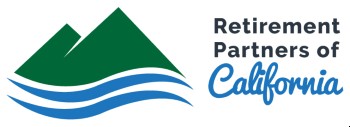Retirement and 401k Tips and Resources that Everyone Can Use
Knowledge Is Retirement Power
 The longer you wait to start collecting money after you become eligible for Social Security, the more you will receive. As an example, assume you were born in 1960. If you claim Social Security upon turning 62, you’ll get 70% of the benefit amount calculated from your lifetime earnings. If you wait until full retirement age — in this case, 67 — you’ll get 100%. Delay past full retirement age and Social Security increases your benefit 8% a year until you hit 70. There’s no financial incentive to delay past age 70.
The longer you wait to start collecting money after you become eligible for Social Security, the more you will receive. As an example, assume you were born in 1960. If you claim Social Security upon turning 62, you’ll get 70% of the benefit amount calculated from your lifetime earnings. If you wait until full retirement age — in this case, 67 — you’ll get 100%. Delay past full retirement age and Social Security increases your benefit 8% a year until you hit 70. There’s no financial incentive to delay past age 70.
Ask Erick: Health Savings Accounts (HSA)
Q: How much can I contribute to my Health Savings Account (HSA) next year?
A: For calendar year 2025, the annual HSA contribution limit for an individual with self-only coverage under a high-deductible health plan will be $4,300, up from $4,150 in 2024. For an individual with family coverage, the amount will be $8,550, up from $8,300. Those who are age 55 or older by the end of the year can contribute an additional $1,000 to their HSA.
Quarterly Reminder
When it comes to your retirement account, your recordkeeper likely prompts you to change your password every quarter. But is it as strong and unique as it should be? To make creating and managing passwords easier, many people subscribe to password manager services. Check out the U.S. Cybersecurity & Infrastructure Security Agency (cisa.gov) for tips on choosing a service provider, as well as more password tips: https://tinyurl.com/45aep4zn. In addition, you should use unique passwords for different accounts, never write them down and never type passwords on devices or networks that you do not control.
Tools and Techniques
As life expectancy continues to increase, so does the likelihood of your parents needing some kind of help as the years pass — whether that’s long-term care, transportation, paying bills or assistance with the daily activities of life. Consider discussing their wishes and plans early and often, while they’re in great health. This approach can avoid surprises and stress if help is needed after an unexpected health event or accident occurs. In addition, find out your loved one’s preference for long-term care and any plans they may have put in place ahead of time. Estimating costs and understanding your options can offer peace of mind and help you plan for any possibility.
Corner on the Market
Basic Financial Terms To Know
Macroeconomics. The study of large-scale economic issues, such as inflation, interest rates, gross domestic product (GDP) and unemployment. It helps form the basis of a large part of government economic policy.
Next step: Send these tips out to your employees. Then get a 401k Fee Benchmark review. Book a meeting below.
Retirement Partners of California Can Help!
We’ll design an Employee Financial Education Plan to help improve your 401k participant results.
Disclosures, Sources, and Footnotes
LPL Financial and its advisors are only offering educational services and cannot offer participants investment advice specific to their particular needs. If you are seeking investment advice specific to your needs, such advisory services must be obtained on your own separate from this educational material.
Kmotion, Inc., 12336 SE Scherrer Street, Happy Valley, OR 97086; www.kmotion.com
©2024 Kmotion, Inc. This newsletter is a publication of Kmotion, Inc., whose role is solely that of publisher. The articles and opinions in this newsletter are those of Kmotion. The articles and opinions are for general information only and are not intended to provide specific advice or recommendations for any individual. Nothing in this publication shall be construed as providing investment counseling or directing employees to participate in any investment program in any way. Please consult your financial advisor or other appropriate professional for further assistance with regard to your individual situation.
Tracking #614343







